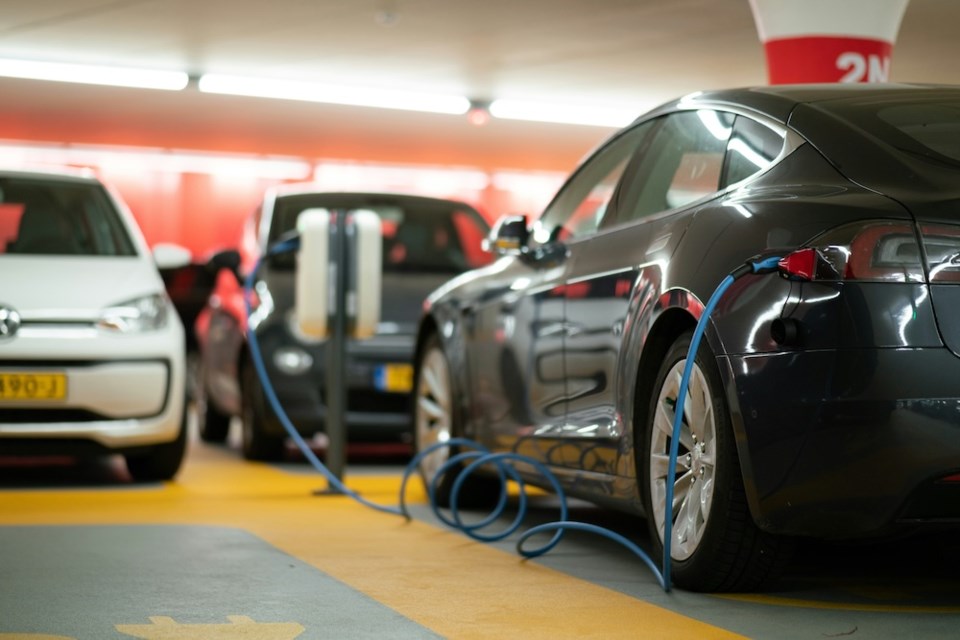The electric vehicle (EV) industry has been one of the most defining technological trends of the past decade, transforming the automotive sector while fuelling advancements in manufacturing.
Yet after , the EV industry in Canada is facing headwinds. Chief among these are the .
For a country with an of its parts to the U.S., . They may also be seen as a betrayal of the centuries-long economic and cultural partnership between two neighbours sharing one of the world’s longest and most porous borders.
Adding to these international headwinds are three other obstacles within the EV industry: . These concerns continue to affect firms here in Canada, juggling high inventory, slow sales and falling revenue.
These challenges have and whether the federal and provincial governments’ multi-billion-dollar investments in the industry are wise.
As researchers amid breakneck changes in technologies and markets, we argue that Canada has every reason to ratchet up its commitments in the months and years ahead.
Along with artificial intelligence, EV represents the emergent frontier of advanced manufacturing in the digital age. Winners of this innovation race will stand to dominate the global market for the foreseeable future.
The case for staying the course
Despite current challenges, EVs remain the future of the automotive sector. Even conservative estimates suggest that by 2040, globally.
Canada’s position in the EV industry is stronger than recent news coverage indicates. The country ranked first among 30 countries in a 2024 , outperforming even China.
This ranking reflects Canada’s and its burgeoning battery manufacturing sector.
Over the past few years, Canada has attracted significant investments from manufacturers like , and .
Canada has reasons to be optimistic about EV and energy storage demand. While concerns about U.S. protectionism loom, Canada’s ensures fiscal incentives and policies that will likely boost short-term demand.
On the environmental, social and governance front, . Though by no means perfect, the country’s climate change policy ambitions, clean electricity grid and position it as a global leader in the EV space.
Advanced manufacturing
Canada’s is another key strength. A prime example is the (OVIN).
OVIN commercializes advanced automotive technologies and manages the development, testing, piloting and uptake of transportation and infrastructure technologies. It operates seven regional technology development sites across Ontario, including in Waterloo, Hamilton, Windsor-Essex, Durham and Toronto.
By serving as a bridge between government, industry and researchers, OVIN has become a model for multi-level governance, with projects jointly funded by the federal and provincial governments and close working relationships with municipalities.
As the EV industry navigates economic and policy challenges, initiatives like OVIN are crucial for driving long-term growth and competitiveness.
The road ahead
While Canada’s automotive innovation ecosystem is generally robust, it requires some and claim the next frontier of the global EV race.
In particular, Canada needs to consolidate its EV innovation ecosystem by integrating the upstream of its domestic supply chain assets with the downstream of its technology commercialization and adoption.
In other words, this means getting more critical minerals to market and making sure a substantial portion of the materials mined in Canada are processed and used domestically to build batteries and vehicles, so the entire EV production cycle benefits Canada’s economy.
Such an endeavour will require Canada to establish the right to tap into its vast reserves of critical minerals to supply the country’s battery plants.
It is the presence of these reserves that made Canada attractive to the automakers in the first place. Leveraging them wisely will be critical for the country’s long-term success in the EV industry.
![]()
Charles Conteh receives funding from the Social Sciences and Humanities Research Council of Canada.
Tia Henstra does not work for, consult, own shares in or receive funding from any company or organisation that would benefit from this article, and has disclosed no relevant affiliations beyond their academic appointment.


